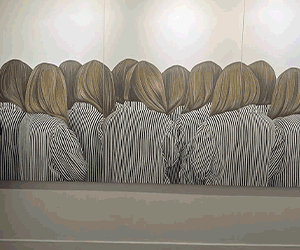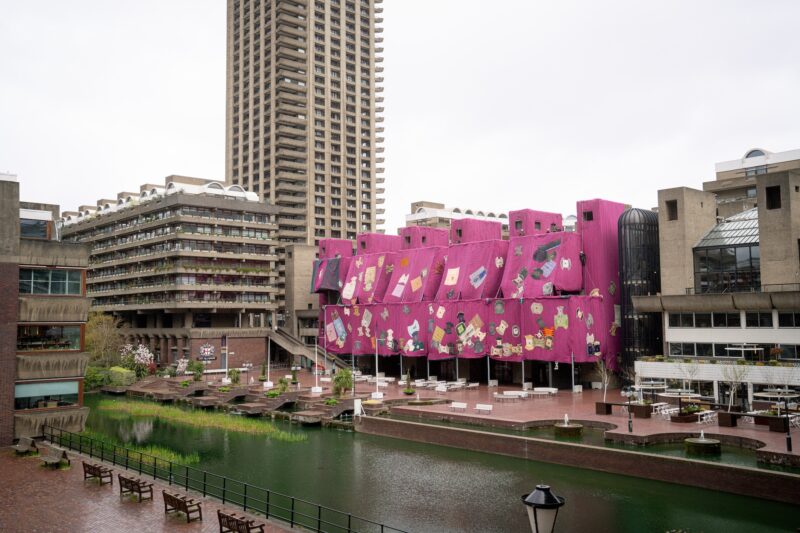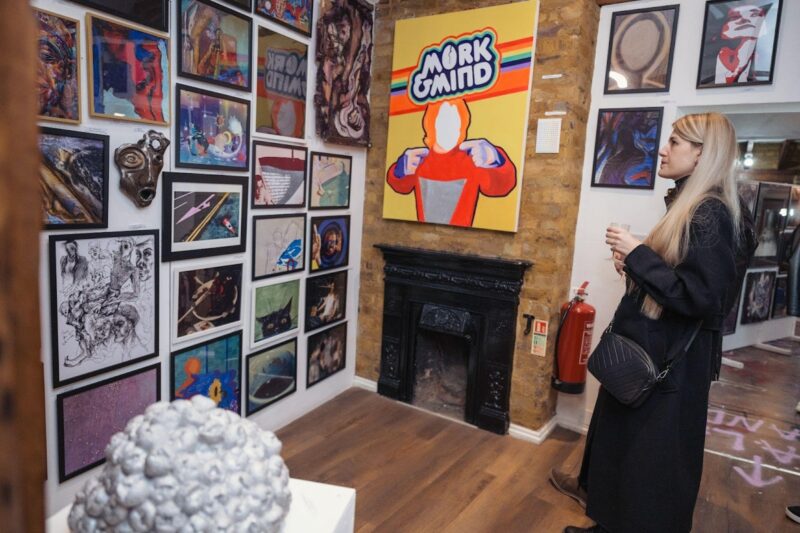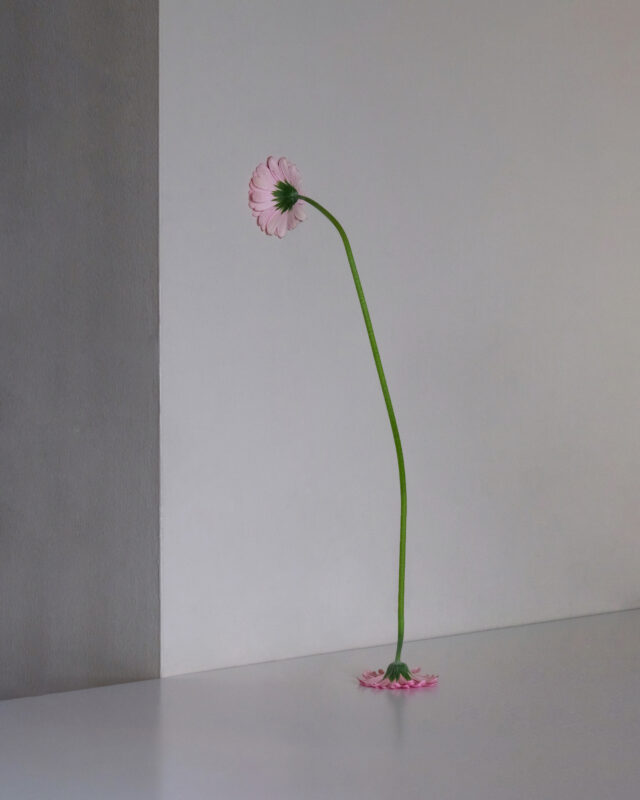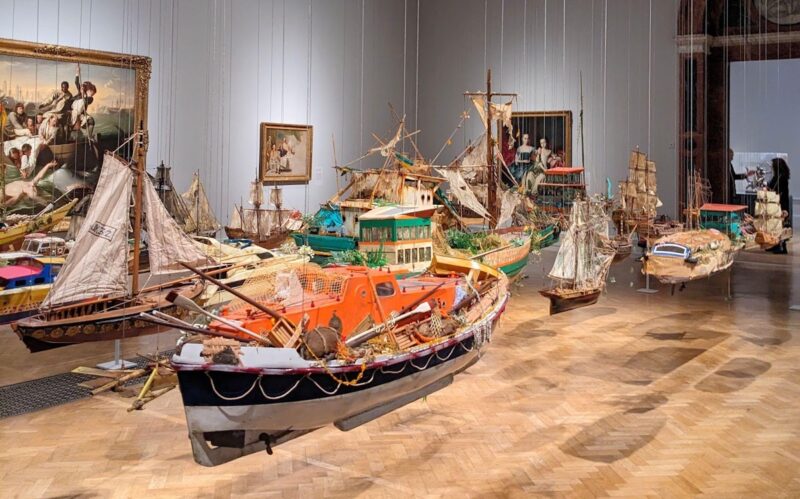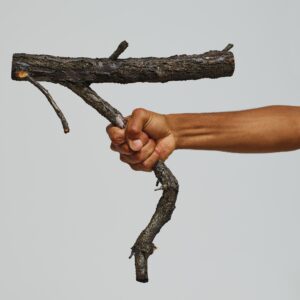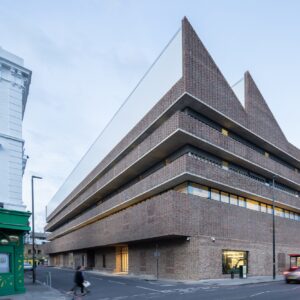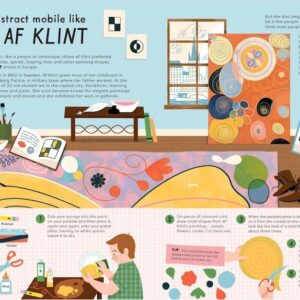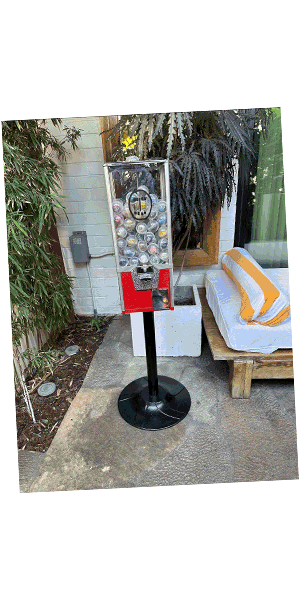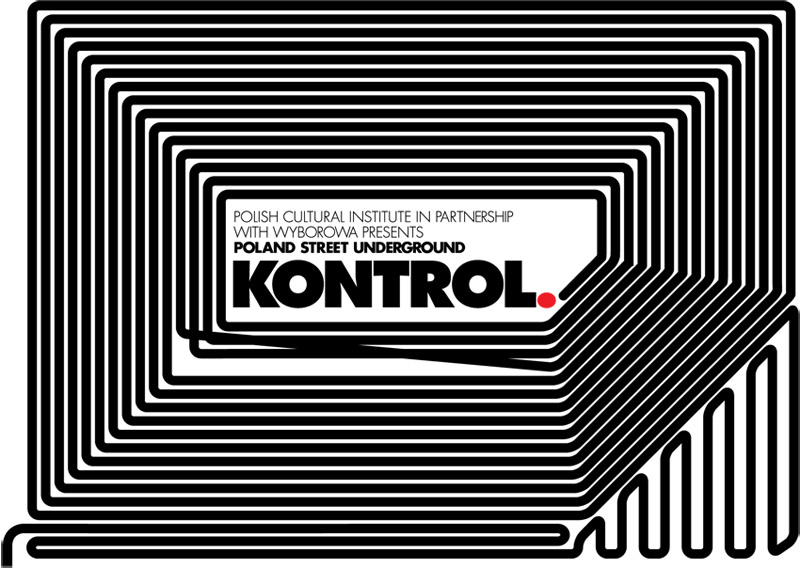
VINYL FACTORY GALLERY, 51 Poland St, London W1F 7RJ
Poland Street Underground is an annual two-day event organized by the Polish Cultural Institute, in partnership with Wodka Wyborowa, that attracts thousands of visitors. This year’s edition of Poland Street Underground is part of Polska! Year – a celebration of Polish Culture, marked by a series of events and exhibitions bringing the best of Polish art, film, design, architecture and music to the United Kingdom; Surrealist filmmaker Wojciech Has is the subject of a Barbican retrospective; Tomasz Stanko performs at the London Jazz Festival, and Miroslaw Balka is the first Polish Artist to take on Tate Modern’s Turbine Hall.
Significantly, 2009 is the 20th anniversary of the fall of the Iron Curtain, and this historic event alongside Orwell’s prophetic book 1984, provide the backdrop for the 3rd Poland Street Underground: a multimedia art exhibition in the heart of Soho, featuring archival film footage, multi-sensory installations, documentaries, music and even poker lessons: The School of Poker will be provided by PartyPoker.com at the Friday night private view, and on Saturday night, plus banned or clandestine literature from Black Market Books and associates will be exhibited within the space (blackmarketbooks.net). Leading Polish artists and architects dispel Cold War myths, delve deep into Polish counter-culture, and explore the meaning of freedom in a 21st Century post-Iron Curtain society.
An innovative sanatorium-style interior will be created in the subterranean space by award-winning architects Moomoo. The interior design will feature the latest in surveillance and crime control technologies, as well as moveable inflatable walls designed to create a safe, easily controlled, white space. Visitors will find a clandestine bar located somewhere within the labyrinthine installation. The event is supported by Wodka Wyborowa, who will provide refreshments with a Polish vibe at the private view. On the second day of the event (Saturday 14 November), which is open to the public, Adam Ficek of Babyshambles will spin the tunes in the evening, and visitors will be invited to win beetroot martinis in a competition, and take part in poker lessons.
The film programme includes the inaugural screening of an English translation of the History of Polish Rock, which penetrated the Iron Curtain to unveil a rare glimpse of the Eastern Bloc music scene, through insightful interviews with Polish musicians and rarely seen archive footage. The documentary features footage of the inaugural Jarocin Festival, the only Eastern block rock festival, and of the 1967 Rolling Stones concert in Warsaw, when they found themselves in Poland after their eviction from Moscow. Hippies, Punks, Heavy Metal and Reggae fans light up the screen with an array of crazy outfits and dance styles.
Films by one of Poland’s greatest filmmaker’s, Oscar-nominated Lodz Film School graduate Marcel Lozinski, will be featured in the Poland Street Underground programme. Lozinski experienced censorship at first hand, and the banned shorts he made in pre-Solidarity Poland – Matriculation or Egzamin Dojrzalosci (1987) and The Microphone Test (Próba Mikrofonu 1981) -will be screened along with Happy End (1973) and Practice Exercises. Lozinski’s celluloid explorations of social reality provide invaluable insights into the experience of Poland before the fall of the Iron curtain.
Artists in the Poland Street Underground include Artur Zmijewski, Rafal Bujnowski, Jaroslaw Kozakiewcz, Joanna Rajkowska and Rafal Jakubowicz.
Radical video artist Zmijewski will show his film Repetition (2005), which was shown at the 2005 Venice Biennale where he represented Poland. Repetition is a re-enactment of Philip Zimbardo’s 1971 ‘Stanford Prison Experiment’, where the reactions of ordinary people given the roles of prisoner and warden in an artificial prison, were documented on film.
Another radical, yet humorous artist is featured: Rafal Bujnowski’s Visa is a witty comment on identity and perception. Bujnowski managed to cross the US border with an official passport containing a photorealist self-portrait, by duping the consulate workers into believing it was a genuine photograph. Bujnowski captures the zeitgeist of the surveillance society, whilst highlighting the power of contemporary artists to unveil flaws in bureaucracy.
Zmijewski has been quoted as saying “The world is a dangerous place”, and performance artist Joanna Rajkowska’s Let me wash your hands, will emphasise the prison-like ambience of the Poland Street Underground, as she proceeds to sterilize the hands of visitors. Although the iodine solution Rajkowska uses prevents infection, as the Artist herself admits “it will never make your hands or my mind clean”.
Rafal Jakubowicz’s Arbeittsdiszplin (2002) continues with the theme of imprisonment. His installation consists of a postcard featuring a Poznan car factory viewed from the wrong side of an iron fence, juxtaposed with an Orwellian video of a security guard surveying the factory. Jakubowicz’s installation evokes unsettling memories of concentration camps and fear of corporate discipline.
Sanopticon (2005) by Jaroslaw Kozakiewcz, takes the theme of prison to inner space. Art and architecture meet in Kozakiewcz’s futuristic circumterresstrial-orbit prison. Sanopticon exists in an imaginary late-21st century Utopia, a world where technological advances and genetics have eliminated disease and virtually eradicated death, and anyone resisting these imposed ideals would be banished to Sanopticon. The Artists, filmmakers and designers involved in Poland Street Underground attempt to open your eyes and fight against the surveillance society that threatens to remove our liberty.
Categories
Tags
- Adam Ficek
- Architecture
- ART
- art london
- Artur Zmijewski
- Babyshambles
- contemporary art
- Design
- FADFILM
- Jarocin Festival
- Jaroslaw Kozakiewcz
- Joanna Rajkowska
- london art
- london art news
- Marcel Lozinski
- Miroslaw Balka
- Moomoo
- music
- PartyPoker.com
- Poland Street Underground
- Polish art
- Polish Cultural Institute
- Polish Culture
- private iew
- Private View
- Private View London
- Private views
- Rafal Bujnowski
- Rafal Jakubowicz
- Tomasz Stanko
- Wodka Wyborowa
- Wojciech Has
